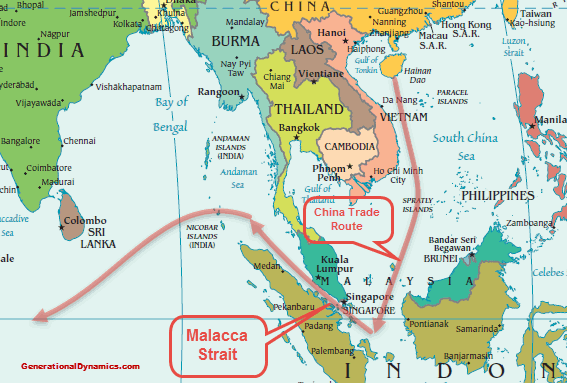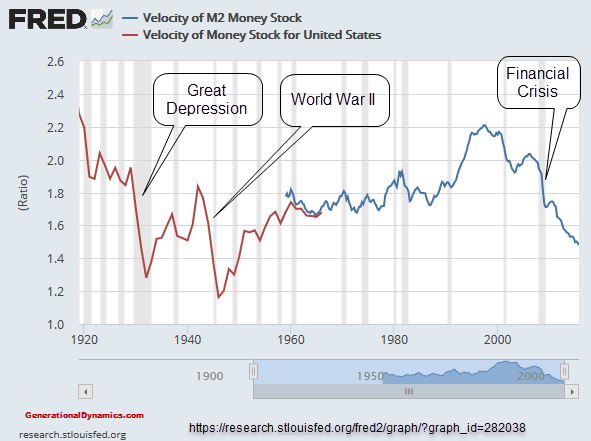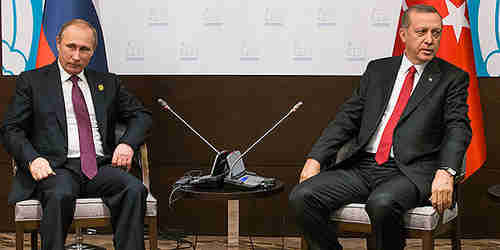*** 28-Jan-16 World View -- China's game of Go beaten by Google's AI software, bringing the Singularity closer
This morning's key headlines from
GenerationalDynamics.com
- China's game of Go beaten by Google's AI software program AlphaGo
- Google DeepMind's Go algorithm uses massive pattern matching neural networks
- Google's AI technology will soon start taking people's jobs
****
**** China's game of Go beaten by Google's AI software program AlphaGo
****
 Two pattern recognition problems. Top: Find the best move in a Go position. Bottom: Find the clock in the room.
Two pattern recognition problems. Top: Find the best move in a Go position. Bottom: Find the clock in the room.
Google's artificial intelligence (AI) division, DeepMind, announced
that it has developed a software program called AlphaGo that can beat
human masters at the ancient Chinese game of Go.
This is considered a significant milestone in AI because the game of
Go is massively more complex than the game of chess, which was
conquered by computers in the 1990s. It's also significant because it
brings the world one step closer to the Singularity, the point in time
where computers are more intelligent than humans.
The game of Go is thought to have originated in China 3000-4000 years
ago. It's the oldest game that's still played in its original form.
Today, it's popular throughout Asia, and it's played to a lesser
extent in Europe and America.
Players take turns alternately placing white and black stones on a
19x19 board. If your stones completely surround your opponent's
stones, then you've captured his stones, and you've gained territory.
But if you're too ambitious and overreach by trying to capture too
much territory, then your opponent can turn the table and surround
your stones. The best players, who have been playing for decades,
develop an intuition that allows to play unexpected moves that permit
a group of stones at one end of the board to link up with stones at
the other end.
The two pictures above show two different "pattern recognition"
problems. The top picture shows a typical Go position. There
are too many possibilities for someone to use simple reasoning
to find the best move. Instead, a master who's played hundreds of
thousands of games over decades will recognize patterns from
previous games that show what the best move is.
The bottom picture is of an ordinary furnished room, and the
problem is to find the clock. Almost anyone can find the
clock immediately, because over the years you've seen perhaps
millions of clocks, and your brain can do the necessary pattern
recognition to find the clock instantly.
This kind of pattern recognition has been extremely difficult for
computer software to master, because the computer would have to create
a database storing perhaps trillions or quadrillions or quintillions
of pictures, and then the software has to be able to compare the
picture or the game position to all those pictures stored in the
database.
Amazingly, the human mind is pretty good at that, because it can store
huge numbers of images and then do many comparisons in parallel. But
in the past, computers did not have enough memory for such a large
database, and did not have enough computing power to do all those
comparisons. But as computers have become more and more powerful,
doubling in power every 18 months or so, huge pattern matching
applications have become more feasible, and this has led to the
implementation of a winning Go-playing computer program AlphaGo.
American Go Association and
MIT Technology Review
****
**** Google DeepMind's Go algorithm uses massive pattern matching neural networks
****
As I described in my article
"Artificial Intelligence and the Singularity by 2030",
the human brain uses two kinds of problem solving methods.
One is illustrated by the bottom picture above, where the brain
uses massive pattern matching to quickly find the clock in the
picture.
The other is ordinary step-by-step reasoning, where you think "If I do
A then B will happen, and I can do C." The game of chess was solved
using computer software that does this kind of reasoning, employing
something called a "minimax algorithm" that was invented in the 1960s.
The minimax algorithm works the same way that an ordinary person plays
chess. You think, "If I make move A then he'll make move B and I can
make move C, but if I make move X they he'll be forced to play move Y
and I'll win." Chess-playing programs do the same thing, and can
examine millions of positions in this way, evaluating them to decide
what the next move should be.
The minimax algorithm requires that you have a simple way to
evaluate a chess position numerically. A good chess playing program
can evaluate any position by adding together numbers for the
amount of material, for how much of the board is controlled, and
other factors such as King safety.
In the game of Go, no such simple numerical evaluation method exists.
There are dozens of white and black stones scattered over a 19x19
board. You could try some simple method of counting occupied
positions, or something like that, but that would never capture the
complexity of the position.
So the AI experts at Google's DeepMind used the power of modern
computers to develop an advanced pattern matching technology. The
technology known is as "neural networks" that was developed in the
1980s because it supposedly simulates the way that networks of neurons
in the human brain perform pattern matching.
They created an enormous database of 30 million Go game positions
developed from human expert games and by allowing the computer to play
against itself for days. They developed advanced neural network
applications to perform massive numbers of comparisons of a board
position to those stored in the database. The "value networks"
perform pattern matching with the database to evaluate board
positions, and the "policy networks" perform pattern matching to
select moves.
Using this approach, they developed the AlphaGo program and tested it
against a human European Go champion, Fan Hui, winning five games to
zero.
In March, AlphaGo will play a match to be held in Seoul, South korea,
against one of the world's best players, Lee Sedol.
9 To 5 Google
and
Nature
****
**** Google's AI technology will soon start taking people's jobs
****
As I wrote in
"29-Dec-15 World View -- Artificial Intelligence breakthroughs in 2015, the Singularity by 2030"
, the year 2015 saw many major achievements in
artificial intelligence, and the Google's AlphaGo technology
continues that trend.
What's interesting is that as recently as 2014, most experts thought
that for a computer program to play Go at a master level was at least
a decade away, and possibly several decades. This illustrates how
many people in the computer field underestimate how rapidly computer
AI is improving, and how quickly the Singularity is arriving.
As I wrote in the article referenced above, I estimated in 2004 that
the Singularity would occur around 2030, and I have no reason today to
change that estimate. However, people tell me all the time that
computers won't be as smart as humans for many decades, even
centuries, because we don't yet understand enough about the human
brain. However, this misses the point. Humans are smarter than apes
even though we don't understand apes' brains, and computers will
become more intelligent than humans by using technologies that don't
require understanding the human brain.
In fact, we're going to start seeing rapid changes well before 2030.
According to a new report from the World Economic Forum, AI is take
away 5 million jobs from humans in the next five years.
Jobs that are most at risk of this transition to artificial
intelligence are in administrative and office divisions, so much so
that some jobs today are already being replaced by mobile apps and
algorithms linked to the internet. For instance, a website may offer
finding better hotel deals than a travel agent, or a mobile
application can help you learn better Mandarin or French than a
personal instructor. Other sectors that are also at risk are
manufacturing, construction, health care, and even the arts and
entertainment.
And it's my personal estimate that AI will replace most computer
programmers' jobs within the next five to ten years.
Wired (12-May-2014) and
StGist
KEYS: Generational Dynamics, Google, artificial intelligence, AI, DeepMind,
AlphaGo, Singularity, minimax algorithm, neural networks,
value networks, policy networks, Fan Hui, Lee Sedol
Permanent web link to this article
Receive daily World View columns by e-mail
Contribute to Generational Dynamics via PayPal








